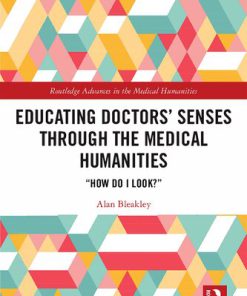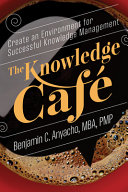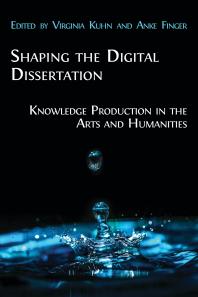Do the Humanities Create Knowledge 1st Edition by Chris Haufe ISBN 1316512509 978-1316512500
$50.00 Original price was: $50.00.$25.00Current price is: $25.00.
Do the Humanities Create Knowledge? 1st Edition by Chris Haufe – Ebook PDF Instant Download/Delivery: 1316512509 978-1316512500
Full download Do the Humanities Create Knowledge? 1st edition after payment

Product details:
ISBN 10: 1316512509
ISBN 13: 978-1316512500
Author: Chris Haufe
There is in certain circles a widely held belief that the only proper kind of knowledge is scientific knowledge. This belief often runs parallel to the notion that legitimate knowledge is obtained when a scientist follows a rigorous investigative procedure called the ‘scientific method’. Chris Haufe challenges this idea. He shows that what we know about the so-called scientific method rests fundamentally on the use of finely tuned human judgments directed toward certain questions about the natural world. He suggests that this dependence on judgment in fact reveals deep affinities between scientific knowledge and another, equally important, sort of comprehension: that of humanistic creative endeavour. His wide-ranging and stimulating new book uncovers the unexpected unity underlying all our efforts – whether scientific or arts-based – to understand human experience. In so doing, it makes a vital contribution to broader conversation about the value of the humanities in an increasingly STEM-saturated educational culture.
Do the Humanities Create Knowledge? 1st Table of contents:
-
Introduction: The Question of Knowledge in the Humanities
- Defining Knowledge: What Do We Mean by “Creating Knowledge”?
- The Role of the Humanities in the Broader Knowledge Landscape
- Overview of the Book’s Structure and Approach
-
Chapter 1: Understanding the Humanities
- What Are the Humanities?
- Historical Roots and the Evolution of the Humanities
- Key Disciplines: Philosophy, History, Literature, Linguistics, and the Arts
- The Humanities in the Context of Modern Academia
-
Chapter 2: The Nature of Knowledge in the Humanities
- Epistemological Foundations: What Is Knowledge in the Humanities?
- Theories of Knowledge: Objective vs. Subjective Approaches
- How Humanities Knowledge Differs from Scientific Knowledge
- The Role of Interpretation, Analysis, and Critique
-
Chapter 3: Methods of Inquiry in the Humanities
- Qualitative Research vs. Quantitative Research: A Comparison
- The Use of Textual Analysis, Historical Context, and Theory
- Comparative Methods: Cross-Cultural and Interdisciplinary Approaches
- Creativity and Subjectivity in the Humanities
-
Chapter 4: Humanities Knowledge and Its Contributions to Society
- The Humanities and Social Understanding
- Cultural and Historical Insights: How the Humanities Shape Our View of the Past
- The Humanities and Ethical Reflection: Insights into Morality and Values
- The Impact of the Humanities on Politics, Law, and Society
-
Chapter 5: Knowledge Creation Through Literature and Arts
- Literature as a Source of Epistemological Inquiry
- The Arts and the Creation of Knowledge: The Role of Aesthetics and Expression
- The Humanities as a Space for Imagination and Innovation
- Literary and Artistic Works as Knowledge-Producing Texts
-
Chapter 6: Knowledge and the Humanities in the Digital Age
- The Rise of Digital Humanities: A New Era for Knowledge Creation
- How Technology Shapes and Transforms Humanistic Inquiry
- Digital Archives, Databases, and Online Platforms in the Humanities
- The Challenges of the Digital Era for the Humanities
-
Chapter 7: The Humanities in Relation to Science and Technology
- Bridging the Gap Between the Humanities and the Sciences
- Interdisciplinary Approaches: Combining the Humanities with STEM Disciplines
- The Role of Humanities in Enhancing Scientific and Technological Understanding
- Can the Humanities and Science Co-Create Knowledge?
-
Chapter 8: Criticisms and Defenses of Humanities Knowledge
- Common Criticisms of the Humanities: Is It “Knowledge”?
- Defending the Humanities: Arguments for the Value of Humanistic Knowledge
- The Practical and Intellectual Benefits of Humanities Education
- Debates on Funding and Support for Humanities Programs
-
Chapter 9: The Future of Knowledge in the Humanities
- Rethinking the Role of the Humanities in a Changing World
- The Evolving Nature of Knowledge in the 21st Century
- The Humanities in a Post-Truth World: Their Relevance and Importance
- New Directions for the Humanities in Knowledge Creation
-
Conclusion: The Enduring Power of the Humanities in Knowledge Production
- Reflecting on the Contributions of the Humanities to Knowledge
- The Ongoing Relevance of Humanistic Inquiry
- Final Thoughts on the Role of the Humanities in a Complex, Knowledge-Driven Society
-
Appendices
- Glossary of Key Terms in Humanities Research
- Recommended Reading and Resources for Further Exploration
- A Short History of the Humanities in Academia
-
References
- Cited Works and Further Scholarly Articles
-
Index
People also search for Do the Humanities Create Knowledge? 1st :
what does humanities teach you
do the humanities create knowledge pdf
do humans create knowledge
do you think the humanities are still relevant
humanities knowledge
Tags:
Chris Haufe,Humanities Create,Knowledge
You may also like…
Science (General) - Theories of Science
Arts - Performing Arts
Do Magic Things with Cards Foundation Knowledge of Magic for Beginners Steadham Amber
Romance - Contemporary Romance
Uncategorized
Business & Economics - Management & Leadership
Computers - Programming
How do you create a programming language 2nd Edition Hugo Urías Lombraña
Politics & Philosophy - International Relations
The Quest for Knowledge in International Relations How Do We Know Richard Ned Lebow











